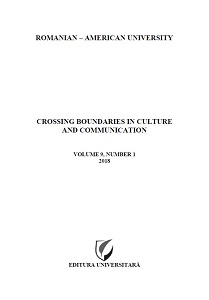Language at Work to Serve the Right to Defence
Language at Work to Serve the Right to Defence
Author(s): Rodica-Roxana AnghelSubject(s): Language and Literature Studies, Law, Constitution, Jurisprudence, Semiotics / Semiology, Theoretical Linguistics, Translation Studies, EU-Legislation, Sociology of Law
Published by: Editura Pro Universitaria
Keywords: Court of law; penal code; defense; fair; foreign; human right; interpreter; skills; language; sworn translator; trial;
Summary/Abstract: It has been under the United Nations auspices that important international documents were created and brought to public knowledge as far as human rights are concerned. Nowadays, human rights issues continue to be on top of political life agenda, public debates in international organizations and meetings, under the main law systems of protecting human rights and liberties: the European system, the American system and the African one. Thus, under the European system, the Universal Declaration of Human Rights, it is stated in art.11, section 1 that: “Everyone charged with a penal offence has the right to be presumed innocent until proved guilt, according to law in a public trial at which he or she has had all guarantees necessary for defence”. In the International Covenant on Civil and Political Rights it is also stated that among other guarantees to a correct defence, “everyone....shall be entitled to: “(f) To have the free assistance of an interpreter if he or she cannot understand or speak the language used in Court”. These provisions have been further on consolidated by the European Convention on Human Rights, Protocol 11, art.6, section 3(e), as well as by the Charter of Fundamental Rights in the European Union. The American Convention on Human Rights and the African Charter on Human and Peoples’ Rights stipulate similar guarantees. Beyond this wonderful human right, for states to provide for “persons under law scrutiny” with translation and interpretation services as well as with legal support for those who cannot afford to pay for a defender/lawyer, lies an ocean of aspects to be taken into account such as: the offer of translation and interpretation services in each market of the member states and World Wide,the training and awareness of translators/interpreters regarding their obligations and their rights when they provide their services in Courts of Justice, Police Departments, Lawyers’ offices, Notaries’ offices.
Journal: Crossing Boundaries in Culture and Communication
- Issue Year: 9/2018
- Issue No: 1
- Page Range: 101-108
- Page Count: 9
- Language: English

